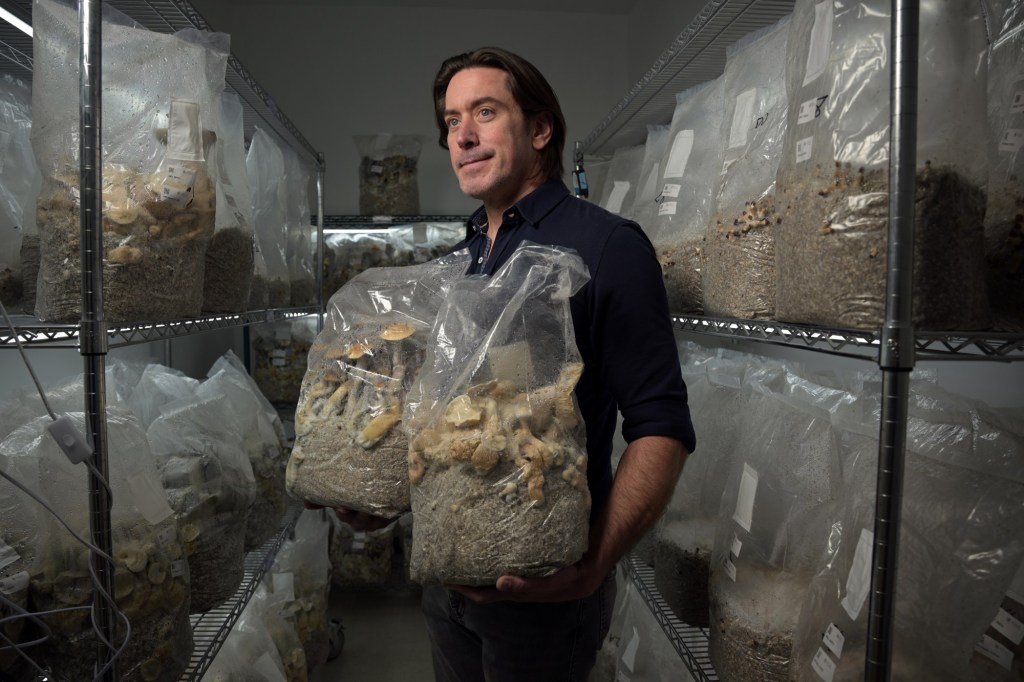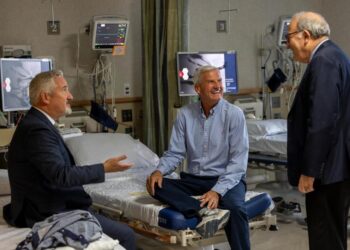A Littleton company is developing a drug using psilocybin mushrooms that it hopes one day will be offered as a natural – and legal – alternative to traditional antidepressants.
AJNA BioSciences is a biotechnology firm that uses hemp and mushrooms to formulate new, botanic drugs for clinical trials. In 2022, it received a research and development license from the federal Drug Enforcement Administration to legally grow psychedelic mushrooms and began developing a microdose formulation.
The goal, said CEO Joel Stanley, is to create a standardized psilocybin product and dosage for U.S. Food and Drug Administration approval, so that one day doctors can recommend it to their patients to treat conditions like depression.
Microdosing is a practice that involves taking small amounts of psilocybin — usually between .1 and .4 grams — regularly to enhance well-being. That dosage is meant to be “sub-psychedelic,” meaning it’s not strong enough to feel the effects or hallucinate in most cases.
The majority of data collected around microdosing is anecdotal or self-reported. Microdosers, some of whom use LSD instead of mushrooms, often say they see improvements in mood, focus and creativity, among other benefits. But clinical research into microdosing is limited and has yielded less promising results in its efficacy, with at least one researcher stating that anecdotal reports about its benefits “are almost certainly biased by the placebo effect.”
Stanley, however, is a believer having tried microdosing himself in the past.
“I have no question that it’s working for a lot of people … but no one knows what they’re taking and what their milligram dose of these different tryptamines is. The strains are going to vary in their supply,” Stanley said. “Without standardizing it and understanding dose we can’t find a truly repeatable outcome.”
This wouldn’t be the first time the FDA considered psilocybin as a medical treatment. In 2018, the agency…
Read the full article here







